extractivism
description: economic model involving the removal of natural resources particularly for export with minimal processing
13 results
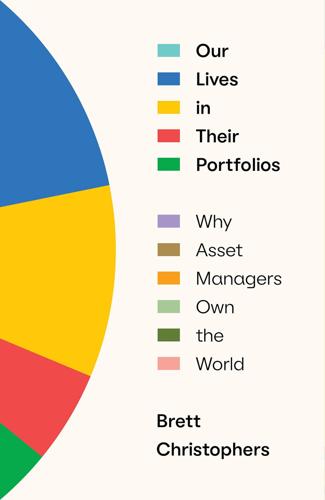
Our Lives in Their Portfolios: Why Asset Managers Own the World
by
Brett Chistophers
Published 25 Apr 2023
Thus, if the arrangement described by Glass and Vanatta represented fiscal mutualism, what we see around us now can perhaps best be thought of instead as a form of fiscal extractivism. The public’s capital is once again being mobilised to fund public-use infrastructures. Yet the linchpin of this investment cycle is today a private-sector actor actively extracting tribute from the fiscal domain. Fiscal extractivism and shareholder loans That fiscal extractivism is an appropriate conceptualisation for asset-manager society is underscored by a series of important further fiscal considerations. Coincidentally, we can approach these by way of another example of pertinent connections between the UK asset manager Innisfree and the country of Sweden.
…
Not only do they hold only a very limited proportion of the vast retirement-savings capital that asset managers invest – and, of course, an even smaller share of total invested capital from all institutional sources. They also suffer the indignity of realising subpar rates of return from the managed investment of those meagre resources. Asset Management and Fiscal Extractivism Extractivism versus mutualism The recent history of the investment strategy of AP3 – the third of Sweden’s five main public pension funds – looks much like that of leading public pension schemes in other territories of the Global North, and with comparable consequences for the evolution of its investment portfolio.
…
The second key feature of the case of SHP and the Solna hospital was, of course, the specific identity of the recipient of these tax-suppressing interest payments – namely, Innisfree itself. Essentially, the reason that the state would not make gains (in the form of tax receipts) in this case was that the asset manager would do so: such is the crux of fiscal extractivism. During the course of the relatively brief history of asset-manager society, the particular type of loan advanced by Innisfree to SHP has indeed represented a common vehicle of said extractivism. A so-called shareholder loan, it involves one or more shareholders lending money to the company in which equity is held (see Chapter 1). The higher the interest rate, the higher the interest payment to the shareholder, and hence the lower the tax payment to the government.
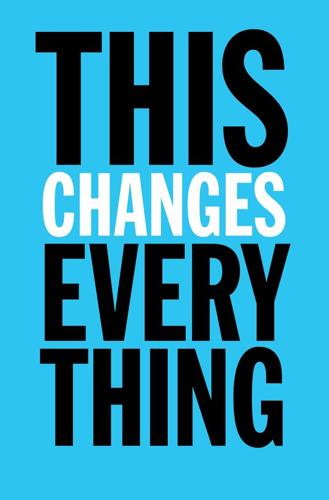
This Changes Everything: Capitalism vs. The Climate
by
Naomi Klein
Published 15 Sep 2014
This carelessness is at the core of an economic model some political scientists call “extractivism,” a term originally used to describe economies based on removing ever more raw materials from the earth, usually for export to traditional colonial powers, where “value” was added. And it’s a habit of thought that goes a long way toward explaining why an economic model based on endless growth ever seemed viable in the first place. Though developed under capitalism, governments across the ideological spectrum now embrace this resource-depleting model as a road to development, and it is this logic that climate change calls profoundly into question. Extractivism is a nonreciprocal, dominance-based relationship with the earth, one purely of taking.
…
ECUADOR: Nick Miroff, “In Ecuador, Oil Boom Creates Tensions,” Washington Post, February 16, 2014; BOLIVIA AND VENEZUELA: Dan Luhnow and José de Córdoba, “Bolivia Seizes Natural-Gas Fields in a Show of Energy Nationalism,” Wall Street Journal, May 2, 2006; ARGENTINA: “Argentine Province Suspends Open-Pit Gold Mining Project Following Protests,” MercoPress, January 31, 2012; “GREEN DESERTS”: “The Green Desert,” The Economist, August 6, 2004; BRAZIL: “The Rights and Wrongs of Belo Monte,” The Economist, May 4, 2013; RAW RESOURCES: Exports of Primary Products as Percentage of Total Exports, “Statistical Yearbook for Latin America and the Caribbean,” Economic Commission for Latin America and the Caribbean, United Nations, 2012, p. 101; CHINA: Joshua Schneyer and Nicolás Medina Mora Pérez, “Special Report: How China Took Control of an OPEC Country’s Oil,” Reuters, November 26, 2013. 45. Eduardo Gudynas, “Buen Vivir: Today’s Tomorrow,” Development 54 (2011): 442–43; Martínez in Temper et al., “Towards a Post-Oil Civilization,” p.17; Eduardo Gudynas, “The New Extractivism of the 21st Century: Ten Urgent Theses About Extractivism in Relation to Current South American Progressivism,” Americas Program Report, Washington, D.C.: Center for International Policy, January 21, 2010. 46. Personal interview with Alexis Tsipras, May 23, 2013. 47. Patricia Molina, “The ‘Amazon Without Oil’ Campaign: Oil Activity in Mosetén Territory,” in Temper et al., “Towards a Post-Oil Civilization,” p. 75. 48.
…
The Right Is Right: The Revolutionary Power of Climate Change 2. Hot Money: How Free Market Fundamentalism Helped Overheat the Planet 3. Public and Paid For: Overcoming the Ideological Blocks to the Next Economy 4. Planning and Banning: Slapping the Invisible Hand, Building a Movement 5. Beyond Extractivism: Confronting the Climate Denier Within PART TWO MAGICAL THINKING 6. Fruits, Not Roots: The Disastrous Merger of Big Business and Big Green 7. No Messiahs: The Green Billionaires Won’t Save Us 8. Dimming the Sun: The Solution to Pollution Is . . . Pollution? PART THREE STARTING ANYWAY 9.

Empire of AI: Dreams and Nightmares in Sam Altman's OpenAI
by
Karen Hao
Published 19 May 2025
GO TO NOTE REFERENCE IN TEXT I discovered the work of: Nick Couldry and Ulises A. Mejias, The Costs of Connection: How Data Is Colonizing Human Life and Appropriating It for Capitalism (Stanford University Press, 2019), 1–352. For more reading on the concept of extractivism, refer to Rosemary Collard and Jessica Dempsey, “ ‘Extractivism’ Is Destroying Nature: To Tackle It Cop15 Must Go Beyond Simple Targets,” The Guardian, December 8, 2022, theguardian.com/environment/2022/dec/08/extractivism-is-destroying-nature-to-tackle-it-cop15-must-go-beyond-simple-targets; and one of the foundational texts that defined the concept: Eduardo Gudynas, “Diez tesis urgentes sobre el nuevo extractivismo: Contextos y demandas bajo el progresismo sudamericano actual,” in Extractivismo, Política y Sociedad, eds.
…
It is not a natural phenomenon. It’s a self-fulfilling prophecy. Skip Notes * The term extractivism comes from the Spanish word extractivismo and the Portuguese word extrativismo, coined decades ago by Latin American scholars seeking to describe a global economic order that was dispossessing them of their natural resources for little local or regional benefit, a history and experience I detail more in chapter 12. I borrow the words of feminist scholars Rosemary Collard and Jessica Dempsey, who write: “Extractivism is more than extraction. Extraction is the not inherently damaging removal of matter from nature and its transformation into things useful to humans.
…
As I recounted this worry to a colleague, she introduced me to a phrase that had already been coined for the phenomenon: “data colonialism.” I discovered the work of scholars Nick Couldry and Ulises A. Mejias, whose foundational text The Costs of Connection, published just that year, argued that Silicon Valley’s pervasive datafication of everything was leading to a return of disturbing historical patterns of conquest and extractivism.[*] The following year, a paper called “Decolonial AI” from Shakir Mohamed and William Isaac at DeepMind and Marie-Therese Png at the University of Oxford reinforced a suspicion I had begun to develop: The AI industry, in equal parts fueled by and fueling this datafication, was in turn accelerating that new colonialism further.
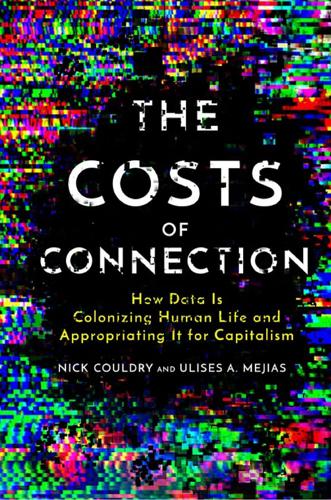
The Costs of Connection: How Data Is Colonizing Human Life and Appropriating It for Capitalism
by
Nick Couldry
and
Ulises A. Mejias
Published 19 Aug 2019
Thus, the appropriation of this resource is presented as something natural, with benefits for all of us. The transformation of “raw” data into a resource from which corporations can derive value is possible only through a material process of extraction, the second of the concepts we are discussing. As Naomi Klein observes, extractivism implies a “nonreciprocal, dominance-based relationship with the earth” that creates sacrifice zones, “places that, to their extractors, somehow don’t count and therefore can be . . . destroyed, for the supposed greater good of economic progress.”17 But extraction has also acquired new horizons.
…
It is this shift that makes data colonialism such a threat to human life, for as Leanne Betasamosake Simpson argues, “The act of extraction removes all of the relationships that give whatever is being extracted meaning.”19 Life, extracted through data relations, acquires a devalued meaning and becomes a mere factor in capitalist production. Warnings about the perils of data extractivism are not new, as Evgeny Morozov reminds us.20 But we can now be more specific about how this process unfolds through a series of extractive rationalities that further justify exploitation, including • economic rationalities that frame the data we produce and the labor we contribute as valueless because they are generated through socialization and not paid work and therefore are available for capitalization by other parties; • legal rationalities that, as Julie Cohen argues,21 frame data as ownerless, redefining notions of privacy and property in order to establish a new moral order that justifies the appropriation of data; • developmental rationalities that present data colonialism as a civilizational project, carried out on behalf of underdeveloped subjects in the name of progress and safety; • cultural rationalities that promote “sharing” while lowering the value of privacy and raising the value of competitive self-presentation; and • technical rationalities that frame data appropriation as a legitimate goal of science, entrepreneurship, and human creativity.
…
Warnings about the perils of data extractivism are not new, as Evgeny Morozov reminds us.20 But we can now be more specific about how this process unfolds through a series of extractive rationalities that further justify exploitation, including • economic rationalities that frame the data we produce and the labor we contribute as valueless because they are generated through socialization and not paid work and therefore are available for capitalization by other parties; • legal rationalities that, as Julie Cohen argues,21 frame data as ownerless, redefining notions of privacy and property in order to establish a new moral order that justifies the appropriation of data; • developmental rationalities that present data colonialism as a civilizational project, carried out on behalf of underdeveloped subjects in the name of progress and safety; • cultural rationalities that promote “sharing” while lowering the value of privacy and raising the value of competitive self-presentation; and • technical rationalities that frame data appropriation as a legitimate goal of science, entrepreneurship, and human creativity. These rationalities are more practical and specific than are the broad ideologies of data colonialism mentioned in chapter 1. They help make all the small choices involved with data relations seem rational and common sense. The 4X’s of Data Extractivism Looking at data relations with colonial precedents explicitly in mind, as we do in this section, helps us see how it is that the extractive rationalities mentioned above are being actualized in the banal habits of data relations. Our goal in doing so is not to provide a conclusive compendium of analogues but rather to select certain moments in the history of colonialism and describe their reverberations today in a way that evokes the persistence of appropriation and extraction.

Big Data Analytics: Turning Big Data Into Big Money
by
Frank J. Ohlhorst
Published 28 Nov 2012
A WEALTH OF PUBLIC INFORMATION For those looking to sample what is available for Big Data analytics, a vast amount of data exists on the Web; some of it is free, and some of it is available for a fee. Much of it is simply there for the taking. If your goal is to start gathering data, it is pretty hard to beat many of the tools that are readily available on the market. For those looking for point-and-click simplicity, Extractiv (http://www.extractiv.com) and Mozenda (http://www.mozenda.com) offer the ability to acquire data from multiple sources and to search the Web for information. Another candidate for processing data on the Web is Google Refine (http://code.google.com/p/google-refine), a tool set that can work with messy data, cleaning them up and then transforming them into different formats for analytics. 80Legs (http://www.80legs.com) specializes in gathering data from social networking sites as well as retail and business directories.
…
Of course, other tools exist, and new ones are coming to market all of the time. As those tools mature and become accessible to the SMB market, more opportunities will arise for SMBs to leverage the Big Data concept. Gathering the data is usually half the battle in the analytics game. SMBs can search the Web with tools like 80Legs, Extractiv, and Needlebase, all of which offer capabilities for gathering data from the Web. The data can include social networking information, sales lists, real estate listings, product lists, and product reviews and can be gathered into structured storage and then analyzed. The gathered data prove to be a valuable resource for businesses that look to analytics to enhance their market standings.
…
See also Hadoop Dynamo E e-commerce Economist e-discovery Education 80Legs Electronic medical records compliance data errors data extraction privacy issues trends Electronic transactions EMC Corporation Employees data analytics team membership monitoring of training Encryption Entertainment industry Entity extraction Entity relation extraction Errors Event-driven data distribution Evidence-based medicine Evolution of Big Data algorithms current issues future developments modern era origins of Expectations Expediency-accuracy tradeoff External data Extract, transform, and load (ETL) Extractiv F Facebook Filters Financial controllers Financial sector Financial transactions Flexibility of storage systems 4Vs of Big Data G Gartner General Electric (GE) Gephi Goal setting Google Google Books Ngrams Google Refine Governance Government agencies Grep H Hadoop advantages and disadvantages of design and function of event-processing framework future origins of vendor support Yahoo’s use HANA HBase HDFS Health care Big Data analytics opportunities Big Data trends compliance evolution of Big Data See also Electronic medical records Hibernate High-value opportunities History.

Border and Rule: Global Migration, Capitalism, and the Rise of Racist Nationalism
by
Harsha Walia
Published 9 Feb 2021
This manifests in working-class struggles animated by race and nationality or eco-fascist trends in environmental movements, described in chapter 11. But right-wing nationalism—pitting whites against racialized people, migrant workers against unionized workers, refugees against citizens, the West against the rest—is a ruling-class ideology. It breaks internationalist solidarity, lowers the wage floor for all workers, and maintains extractivism and exclusion in a warming world. Right-wing nationalism purports to defend the working class but is vehemently anticommunist. The politics of fear is a distracting cover for inequality and is a material basis for the disenfranchisement of racialized communities and exploitation of racialized workers.
…
That same year, Duterte became an overnight international environmental hero after threatening to declare war on Canada for dumping one hundred containers of nonrecyclable waste on the Philippines. The president, though, is no environmentalist. The Lumad people continue to face threats to their lands and livelihoods from extractivism, and have long been fighting to uphold their customary laws and cultures against a “systemic war of extinction.”50 Threats to their communal lands have increased under the forces of transnational capitalist plunder. Copper, nickel, gold, chromite, coal, and gas are mined and extracted, and communal lands are declared uncultivated and turned over by the state to agribusinesses to export oil, bananas, rubber, and pineapples.
…
Two essential anticolonial reorientations for settlers laboring on Indigenous lands are, first, the recognition of Indigenous land defense as generative labor and, second, solidarity with Indigenous blockades as picket lines preventing state and capital’s expropriation of land by asserting legitimate Indigenous jurisdiction. This is urgent because in this time of frontier extractivism, the price for Indigenous caretaking labor and land stewardship is high. Across Turtle Island, warriors in the Idle No More, Protect Mauna Kea, Standing Rock, Stop Keystone XL, Tiny House Warriors, and Wet’suwet’en movements have faced the intensity of armed state repression. Worldwide, the horrific murders of environmental land defenders, overwhelmingly Indigenous resisters, has doubled over the past fifteen years, with four people killed every week, and land defenders making up 40 percent of targeted killings of all human rights defenders in 2019.47 Far-right revanchism is, in conclusion, inseparable from the making of class identity through race, the scapegoating of foreigners solidifying antimigrant xenophobia, and the reproduction of settler entitlement.
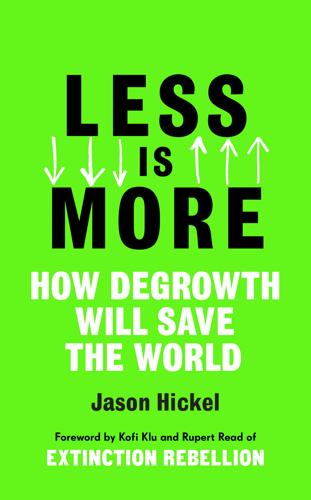
Less Is More: How Degrowth Will Save the World
by
Jason Hickel
Published 12 Aug 2020
It means using tariffs and subsidies to protect and encourage domestic industries. It means decent wages, labour laws and a progressive distribution of national income. And it means building economies that are organised around renewable energy and ecological regeneration rather than around fossil fuels and extractivism. It’s important to remember that many of these policies were used widely across the South in the post-colonial decades, from the 1950s to the 1970s, before that vision was dismantled by structural adjustment programmes from the 1980s onwards. A few countries managed to escape this fate. Costa Rica was one of them.
…
Remember, excess consumption in high-income nations is sustained by an ongoing process of net appropriation from the lands and peoples of the global South, on unequal terms. Colonialism as such may have ended half a century ago, but – as we’ve seen – those old patterns of plunder continue to this day, with ruinous consequences. To the extent that degrowth in high-income nations releases global South communities from the grip of extractivism, it represents decolonisation in the truest sense of the term. * My years of researching degrowth have given me something I didn’t really expect – hope. And yet I have nonetheless found myself worrying, from time to time, that something is still missing. By focusing all our attention on how to fix the economy, we risk ignoring the bigger picture.
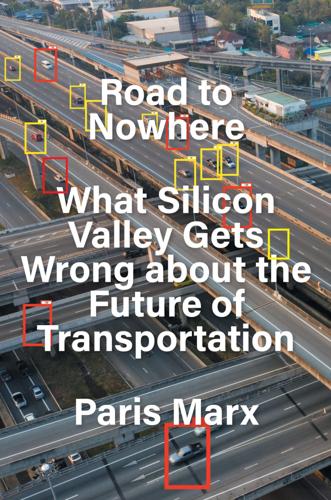
Road to Nowhere: What Silicon Valley Gets Wrong About the Future of Transportation
by
Paris Marx
Published 4 Jul 2022
In Alberta, vast tailings ponds that are left over from bitumen extraction pollute the environment; in the Gulf of Mexico, the effects of the BP oil spill are still being felt more than a decade later; throughout North America, Indigenous groups and activists are constantly trying to stop the construction of pipelines because of the harm and risk they present for their communities; and that does not even consider the harm that has been wrought in the Global South by mining and oil companies. Riofrancos warned that a transport system centered around electric vehicles risks creating a green extractivism that subordinates “human rights and ecosystems to endless extraction in the name of ‘solving’ climate change,” thereby ignoring “the very real harm it inflicts on humans, animals, and ecosystems.”24 With the interests of tech, automakers, and other influential industries aligning behind electric vehicles, and neoliberal governments seeing them as a means to make it appear as though they are doing something concrete to address climate change while trying to increase employment in manufacturing and resource sectors, there is a clear incentive to downplay environmental harms.
…
: Public Transit in the Age of Google, Uber, and Elon Musk, Between the Lines Books, 2020, pp. 193–205. 20 Untokening, “Untokening 1.0—Principles of Mobility Justice,” The Untokening (blog), November 11, 2017, Untokening.org. 21 George Monbiot, “Public Luxury for All or Private Luxury for Some: This Is the Choice We Face,” Guardian, May 31, 2017, Theguardian.com. 22 Aaron Vansintjan, “Public Abundance Is the Secret to the Green New Deal,” Green European Journal, May 27, 2020. 23 For specific proposals, see Callum Cant, Riding for Deliveroo: Resistance in the New Economy, Polity Press, 2019; Dan Hind, “The British Digital Cooperative: A New Model Public Sector Institution,” Common Wealth, September 20, 2019, Common-wealth.co.uk; “Our Plan,” Delivering Community Power, n.d., Deliveringcommunitypower.ca; Paris Marx, “Build Socialism Through the Post Office,” Jacobin, April 15, 2020, Jacobinmag.com. 24 See Salomé Viljoen, “Data as Property?,” Phenomenal World, October 16, 2020, Phenomenalworld.org. 25 Aaron Benanav, “How to Make a Pencil,” Logic Magazine, December 20, 2020, Logicmag.io. 26 Le Guin, “A Rant About ‘Technology.’” 27 Thea Riofrancos, Resource Radicals: From Petro- Nationalism to Post-Extractivism in Ecuador, Duke University Press, 2020. 28 Ursula K. Le Guin, “The Ones Who Walk Away from Omelas,” in New Dimensions 3, ed. Richard Silverberg, Nelson Doubleday, 1973, p. 6. 29 Ibid., p. 7. Conclusion 1 “Announcing Sidewalk Toronto: Press Conference Live Stream,” Sidewalk Labs, October 17, 2017, YouTube.com. 2 Saadia Muzaffar, “My Full Resignation Letter from Waterfront Toronto’s Digital Strategy Advisory Panel,” Medium, October 8, 2018, Medium.com. 3 “Vision Sections of RFP Submission,” Sidewalk Labs, October 17, 2017, Sidewalklabs.com. 4 “Concerned Torontonians Launch #BlockSidewalk Campaign,” Block Sidewalk, February 25, 2019, Blocksidewalk.ca. 5 Laura Bliss, “Meet the Jane Jacobs of the Smart Cities Age,” CityLab, December 21, 2018, Bloomberg.com. 6 Dave Yasvinski, “Waterfront Toronto Releases New Vision for 12 Acres Abandoned by Sidewalk Labs,” National Post, March 10, 2021, Nationalpost.com.

Uprooting: From the Caribbean to the Countryside - Finding Home in an English Country Garden
by
Marchelle Farrell
Published 2 Aug 2023
And I wonder about what following this evidence to its conclusion might tell us – not that getting back to nature will make us more well, but that in having been disconnected in the first place we are all profoundly ailing. We have all gone mad. My mind cannot fully hold the spiral of all that feels incomprehensible in the world. The issues of colonial conquest, or the racism that it bred to further and uphold itself, of the inequality it engendered, of the exponential extractivism it created that fuels the climate crisis – they swirl round my brain like a tornado. Each issue linked, each feeding the other in an endless, accelerating feedback loop. When my mind gets sucked into the circling updraft, I begin to lose myself in a hurricane of despair. The only way out of that mad cycle is to root myself deeply into the rich earth.

Stolen: How to Save the World From Financialisation
by
Grace Blakeley
Published 9 Sep 2019
Financialised capitalism may be a uniquely extractive way of organising the economy, but this is not to say that it represents the perversion of an otherwise sound model. Rather, it is a process that has been driven by the logic of capitalism itself. As their economic model has developed, the owners of capital have sought out ever more ingenious ways to maximise returns, with financial extractivism the latest fix. In many ways finance-led growth represents capitalism’s most perfect incarnation — a system in which profits seem to appear out of thin air, even as these gains really represent value extracted from workers, now and in the future. The Interregnum The financial crisis was the beginning of the end for finance-led growth.
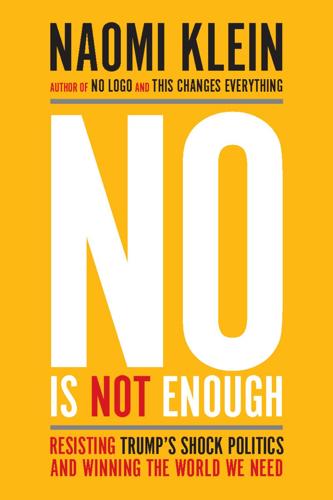
No Is Not Enough: Resisting Trump’s Shock Politics and Winning the World We Need
by
Naomi Klein
Published 12 Jun 2017
And for many of us, this comes as a cosmic relief—at last, a set of demands that actually acknowledges how much and how fast we need to change. The Leap rings true because it sees the climate crisis not as a technical problem to be solved by engineers, but as a crisis of a system and an economic philosophy. The Leap identifies the root cause of the climate crisis—and it’s the dominant economic logic of our time: extractivism to feed perpetual growth rooted in ever-increasing consumption…. That’s a scary level of change, but it’s honest. And people know in their bones that it’s the kind of change we need. Before releasing it to the public, we asked many organizations and trusted public figures to become initiating signatories.

The Hidden Globe: How Wealth Hacks the World
by
Atossa Araxia Abrahamian
Published 7 Oct 2024
After the war, the United Nations assigned Nauru the status of a trust territory—again under the control of the Australians—before it finally achieved independence in 1968. Rather than fitting into contemporary categories of state and nonstate, Nauru’s shifting, vulnerable status enabled what scholars call extractivism: when “territories, populations, and animal and plant life [are] rendered into commodities for the taking so as to enrich world economic centers,” as the anthropologist Julia Morris puts it. A rotating cast of foreign corporations strip-mined the island, decade after decade, with little regard for the native population.
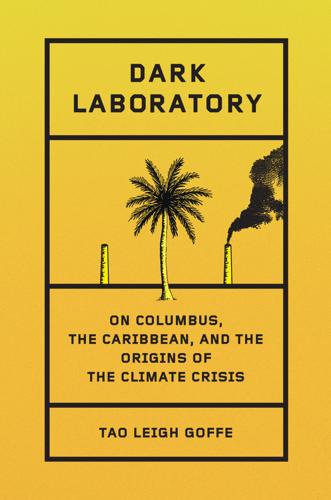
Dark Laboratory: On Columbus, the Caribbean, and the Origins of the Climate Crisis
by
Tao Leigh. Goffe
Published 14 Mar 2025
The violence of botanic gardens contains many subgenres of green space where beauty is defined through the fascist forms of control disguised as elegant gardening. Many forms of morality are mapped onto Western gardens, which were modeled on the Garden of Eden as a genre of fantasy. Botanic gardens such as Kew in southwest London showcase the perverse colonial landscaping design as a capitalist project of extractivism. The colonial logic of collecting in botanical gardens like Kew is cold and exploitative, rarely designed for sustenance. At the heart of the modern climate crisis, botanic gardens must be understood as engines that fueled the economy of empire. Such “ornamental” gardens fueled deforestation. Many tropical plants exist only in private collections, like so many rare works of art.